-

Creation is Key
Mike Lawson | January 7, 2016
Read More...Technology has made it easier than ever before for students to create their own music. Whether using notation, loops, Midi sequencing, or recording, any child can create and share a tangible musical creation in minutes. Where does this fit into your music education curriculum? Does creation only exist as part of general music, or a theory class, or in a music technology lab? Or is music creation an essential component in all music courses at any level? Let’s explore two reasons why all students should consistently engage in active music creation:
-
Do You Really Want the Drums Any Louder?
Mike Lawson | November 12, 2015
Read More...If your drummer plays like Chad Smith then the answer is of course, yes! Miking drums is both an art and a science and like anything else takes some trial and error, because every drum kit and performance location is different. However, there are a few fundamentals that apply and will help you get the best sound out of your amplified drum kit.
-
How Relevant is Your Teaching: Mastering Music Can FLIP the Switch!
Mike Lawson | October 22, 2015
Read More...The times they, are a changing.” Accountability is king. But accountability needs to have meaning beyond raw data. We music educators may think we are above the fray because our work is on public display. Is it really OK that homework is merely repetitive practice for mastery of what’s already being taught and practiced in the classroom?
-
Microphones for School Ensembles
Mike Lawson | September 4, 2015“Capturing the sound of an instrument starts at the microphone. What’s happened with music and audio, both live and recorded, is similar to what’s happened with digital cameras. You can get something really cheap or almost free (iPhone) that will “do the job”. But if you want great quality photo’s you need a great lens. The camera body will change with technology but the lens is glass and that’s not something that changes with technology for the most part. It’s the same with sound equipment. The microphone remains as the most important tool to capture sound, and all the technology and digital processing comes later.” Doug Swan, National Sales Director for Audio Technica Microphones.
As Doug so eloquently points out, microphones are the initial input source for sound in an audio system or recording. A bad microphone is like a bad reed, no matter how great the instrument or player is, if the initial input source is inadequate the entire sound is compromised. While there are many brands and models of microphones available, this article will focus on the type of microphone needed for school applications.
Read More... -
Juilliard String Quartet App Released by The Juilliard School
Mike Lawson | June 25, 2015
Read More...The new Juilliard String Quartet App has been released by The Juilliard School. The app offers an exclusive look at the quartet's performance of "Death and the Maiden" Quartet by Franz Shubert.
-
Seamless Classroom Integration of National Standards & Cutting-Edge Music Technology
Mike Lawson | June 11, 2015
Read More...
Accountability is the new watchword in education. Music educators are on the front lines of this movement because our work with students is regularly on display for public scrutiny. But things are changing and we can’t sit on our laurels. This new era requires more justifications and qualifications for academic accreditation and excellence. Mike Blakeslee, deputy executive director of NAfME stated: “With the increasing emphasis on core standards as drivers for our education system in areas, ranging from curriculum development to teacher assessment, we need music standards that match current and future policy needs.
-
Your Band: Part 3 – Splicing Together Takes and Adding Effects
Mike Lawson | May 19, 2015
Read More...Our first two installments in this series covered proper ensemble recording and EQ, which like any musical skill will improve with practice. For the brave and/or crazy folks out there, this article will discuss editing a stereo recording by combining multiple recording takes. This is valuable not only for recording, but for editing together songs (with permission) for color guard or dance routines.
-
Sampling the Sampler in GarageBand on Your iPad
Mike Lawson | May 19, 2015
Read More...Editor’s Note: GarageBand is a powerful tool for teaching musical composition and ideas to all levels of students. With the availability of GarageBand on the iPad and even iPhones, it has become a nearly-ubiquitous tool available to educators and students alike. Packing in multiple features such as MIDI, virtual instruments, multi-track recording, effects, and an array of signal processors, GarageBand hosts a wide variety of options available for shaping your sounds, and crafting fun and interesting projects for your students.
-
MusicFirst and MatchmySound Release PracticeFirst Online Practice and Assessment Tool
Mike Lawson | April 24, 2015
Read More...PracticeFirst, the new online practice and assessment tool from MusicFirst and MatchmySound is now available.
-
Prime Project-Based Resources
Mike Lawson | April 7, 2015Using and Mastering V.I.P. Software Publications
Read More... -
After the Recording
Mike Lawson | April 7, 2015Easy post-production tips for the music educator
Read More... -
Recording and Listening in the Digital Age
Mike Lawson | March 9, 2015As we approach festival season, recording your ensemble is essential for many reasons.
1.) We can’t catch everything in class.
As directors, we cannot hear and address every detail during a run through of a piece, so a quality recording will allow us to listen back later and plan for the next rehearsal.
Read More...
Warning: Undefined variable $additional_loop in /home/sbomagazine/public_html/site/wp-content/themes/timeless2021/archive.php on line 103
Warning: Attempt to read property "max_num_pages" on null in /home/sbomagazine/public_html/site/wp-content/themes/timeless2021/archive.php on line 103


 Technology has made it easier than ever before for students to create their own music. Whether using notation, loops, Midi sequencing, or recording, any child can create and share a tangible musical creation in minutes. Where does this fit into your music education curriculum? Does creation only exist as part of general music, or a theory class, or in a music technology lab? Or is music creation an essential component in all music courses at any level? Let’s explore two reasons why all students should consistently engage in active music creation:
Technology has made it easier than ever before for students to create their own music. Whether using notation, loops, Midi sequencing, or recording, any child can create and share a tangible musical creation in minutes. Where does this fit into your music education curriculum? Does creation only exist as part of general music, or a theory class, or in a music technology lab? Or is music creation an essential component in all music courses at any level? Let’s explore two reasons why all students should consistently engage in active music creation:
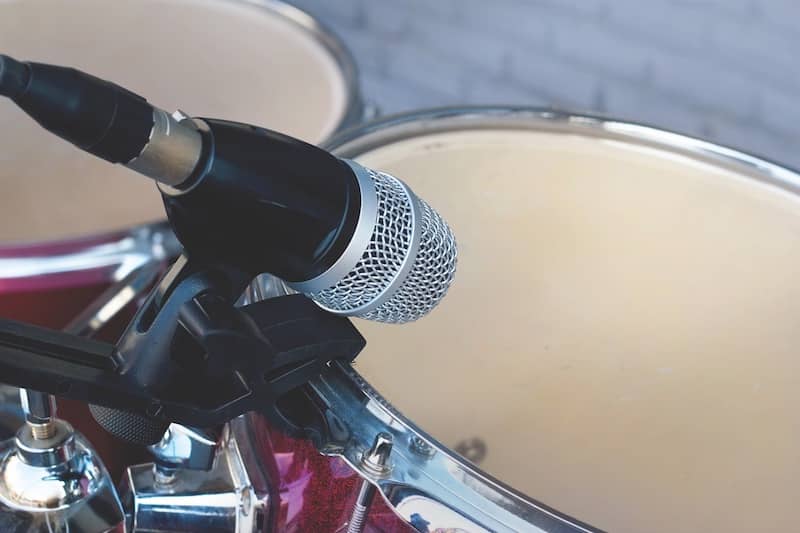 If your drummer plays like Chad Smith then the answer is of course, yes! Miking drums is both an art and a science and like anything else takes some trial and error, because every drum kit and performance location is different. However, there are a few fundamentals that apply and will help you get the best sound out of your amplified drum kit.
If your drummer plays like Chad Smith then the answer is of course, yes! Miking drums is both an art and a science and like anything else takes some trial and error, because every drum kit and performance location is different. However, there are a few fundamentals that apply and will help you get the best sound out of your amplified drum kit.
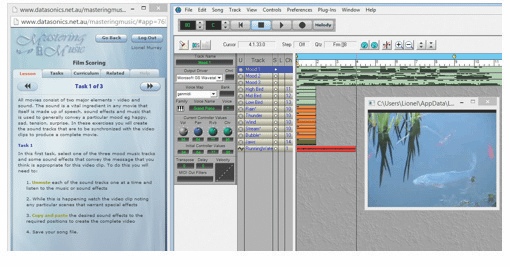 The times they, are a changing.” Accountability is king. But accountability needs to have meaning beyond raw data. We music educators may think we are above the fray because our work is on public display. Is it really OK that homework is merely repetitive practice for mastery of what’s already being taught and practiced in the classroom?
The times they, are a changing.” Accountability is king. But accountability needs to have meaning beyond raw data. We music educators may think we are above the fray because our work is on public display. Is it really OK that homework is merely repetitive practice for mastery of what’s already being taught and practiced in the classroom? 

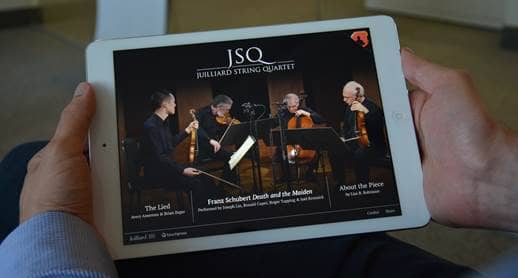 The new Juilliard String Quartet App has been released by The Juilliard School. The app offers an exclusive look at the quartet's performance of "Death and the Maiden" Quartet by Franz Shubert.
The new Juilliard String Quartet App has been released by The Juilliard School. The app offers an exclusive look at the quartet's performance of "Death and the Maiden" Quartet by Franz Shubert.
 Accountability is the new watchword in education. Music educators are on the front lines of this movement because our work with students is regularly on display for public scrutiny. But things are changing and we can’t sit on our laurels. This new era requires more justifications and qualifications for academic accreditation and excellence. Mike Blakeslee, deputy executive director of NAfME stated: “With the increasing emphasis on core standards as drivers for our education system in areas, ranging from curriculum development to teacher assessment, we need music standards that match current and future policy needs.
Accountability is the new watchword in education. Music educators are on the front lines of this movement because our work with students is regularly on display for public scrutiny. But things are changing and we can’t sit on our laurels. This new era requires more justifications and qualifications for academic accreditation and excellence. Mike Blakeslee, deputy executive director of NAfME stated: “With the increasing emphasis on core standards as drivers for our education system in areas, ranging from curriculum development to teacher assessment, we need music standards that match current and future policy needs. 
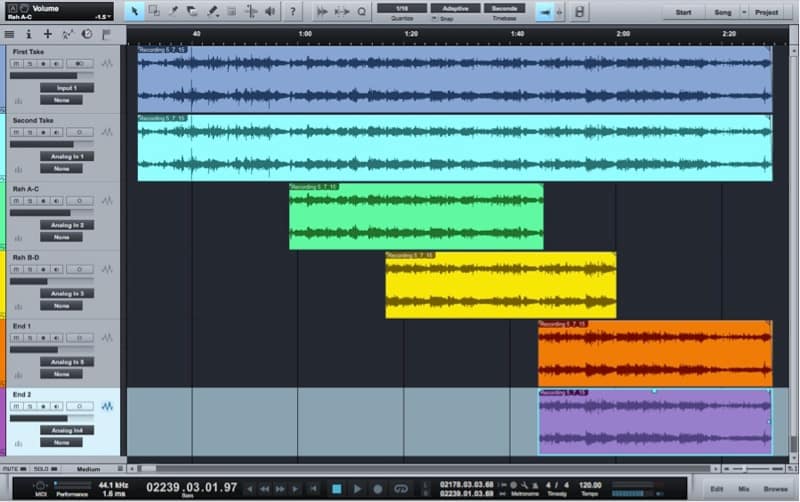 Our first two installments in this series covered proper ensemble recording and EQ, which like any musical skill will improve with practice. For the brave and/or crazy folks out there, this article will discuss editing a stereo recording by combining multiple recording takes. This is valuable not only for recording, but for editing together songs (with permission) for color guard or dance routines.
Our first two installments in this series covered proper ensemble recording and EQ, which like any musical skill will improve with practice. For the brave and/or crazy folks out there, this article will discuss editing a stereo recording by combining multiple recording takes. This is valuable not only for recording, but for editing together songs (with permission) for color guard or dance routines.
 Editor’s Note: GarageBand is a powerful tool for teaching musical composition and ideas to all levels of students. With the availability of GarageBand on the iPad and even iPhones, it has become a nearly-ubiquitous tool available to educators and students alike. Packing in multiple features such as MIDI, virtual instruments, multi-track recording, effects, and an array of signal processors, GarageBand hosts a wide variety of options available for shaping your sounds, and crafting fun and interesting projects for your students.
Editor’s Note: GarageBand is a powerful tool for teaching musical composition and ideas to all levels of students. With the availability of GarageBand on the iPad and even iPhones, it has become a nearly-ubiquitous tool available to educators and students alike. Packing in multiple features such as MIDI, virtual instruments, multi-track recording, effects, and an array of signal processors, GarageBand hosts a wide variety of options available for shaping your sounds, and crafting fun and interesting projects for your students. 
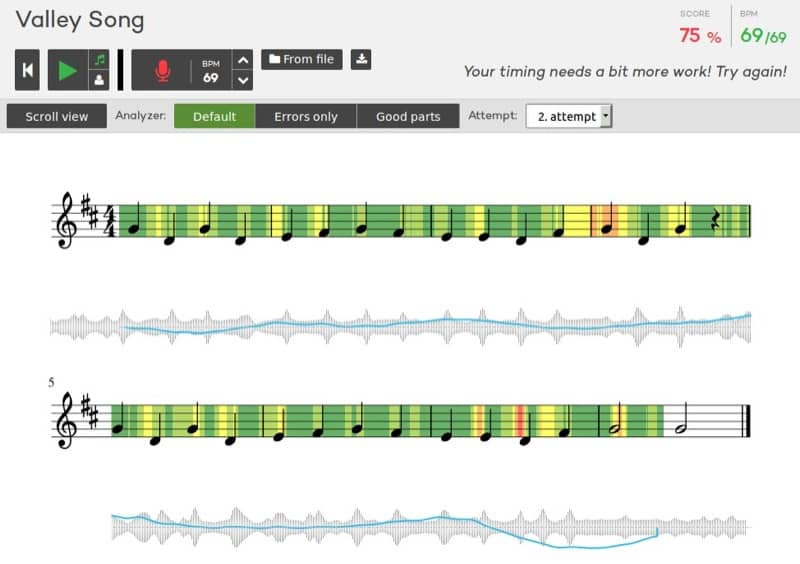 PracticeFirst, the new online practice and assessment tool from MusicFirst and MatchmySound is now available.
PracticeFirst, the new online practice and assessment tool from MusicFirst and MatchmySound is now available.


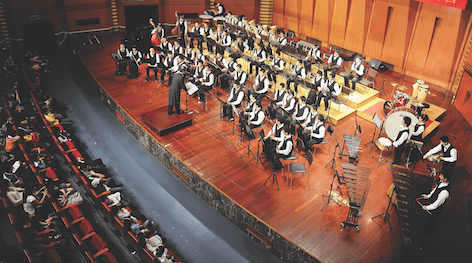 As we approach festival season, recording your ensemble is essential for many reasons.
As we approach festival season, recording your ensemble is essential for many reasons.





